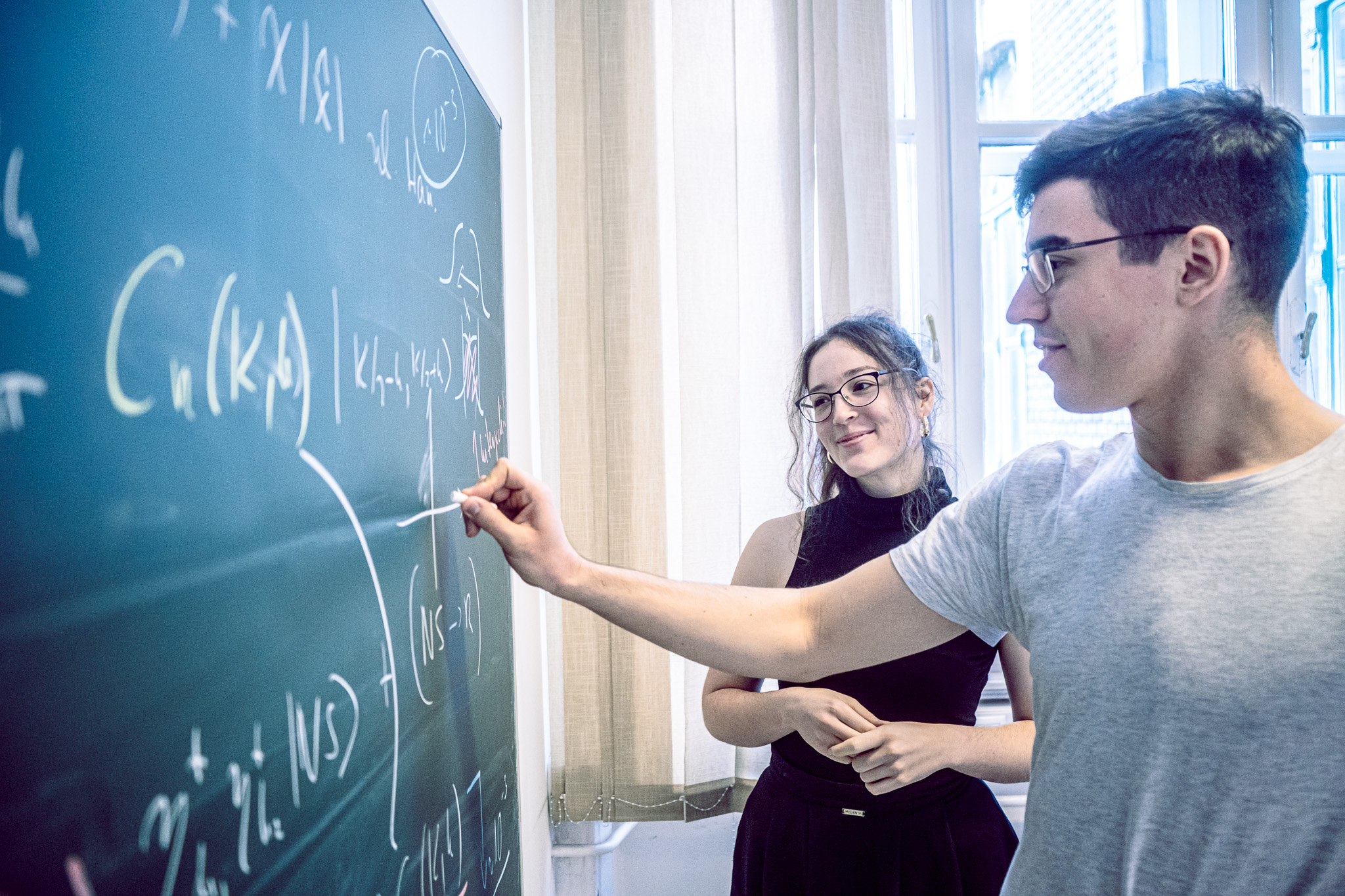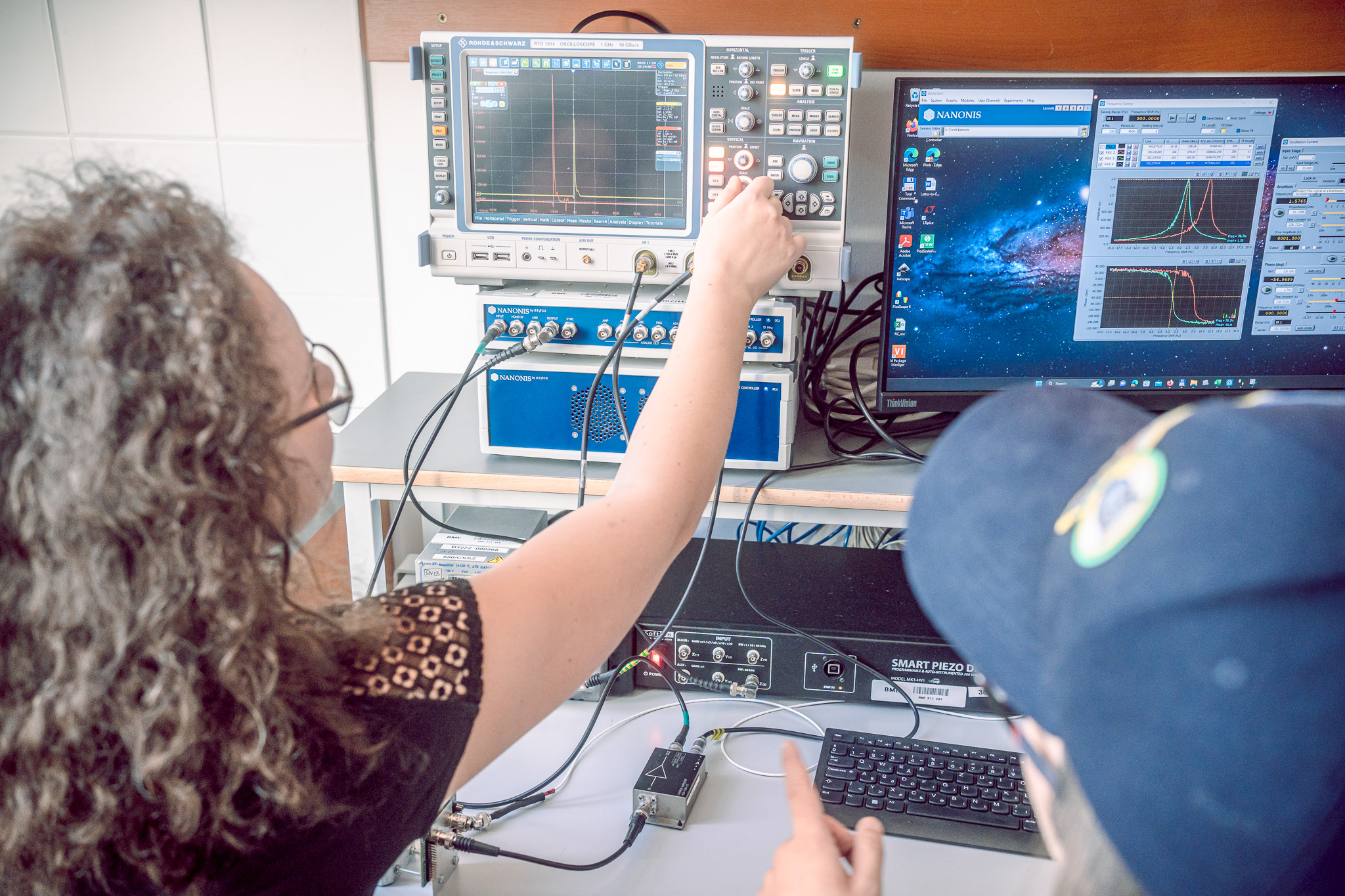The goal of our Physics BSc and subsequent Master’s program is to prepare for research and development in a wide range of fields. We provide strong background in theoretical and experimental physics, mathematics and programming, while getting you involved in the activity of our international research teams.
Focus areas include quantum physics and technology, field theory, data science, nanotechnology, materials science, quantum optics and photonics, nuclear technologies and medical physics. Students can chose between a Research Physicist specialization, or enter our R&D focussed Applied Physics specialization.
While most of our graduates work as physicists, they often enter fields such as economical modelling or consulting, where complex analysis and strong modelling skills are required.
For our BSc programs general minimum requirements are an eligible highschool degree; document of English language proficiency and successful admission tests, while for our MSc programs an eligible BSc degree is needed. Detailed information on the general admission procedure (deadlines and requirements) can be found on our E-admission page.
Admission procedure:
1. Pre-screening by high school graduation results (or univ. certificate), motivation and recommendation letters (if available).
2. Admission test in mathematics and physics (online).
3. If passed, online interview in English (preparedness, communication, motivation, and attitude).
4. Decision: admission or rejection
You can study at BME with a scholarship or as a self-funded student, by paying tuition fees. Various scholarships help you cover tuition fees and your living expenses during your studies. Successful PhD students may receive additional support from research grants.
Our program includes courses on experimental physics with intensive laboratory exercises, and a strong theoretical physics and mathematics curriculum. It also provides extensive skills in informatics, electronics and measurement techniques. You can specialize as a Physicist or in Applied Physics.
Mechanics, Electricity, Thermodynamics, Introduction to Modern Physics
Linear Algebra, Calculus, Probability, Mathematical Methods in Physics
Programming, Numerical Methods, Measurement Techniques, Electronics, Chemistry
Management and social sciences (4 credits), any subject of interest (9 credits)
Theoretical Mechanics, Quantum Mechanics, Electrodynamics, Statistical Physics, Optics, SolidState Physics
Physicist Specialization – further subjects in theoretical physics and programming
Applied Physics Specialization – application-oriented subjects, further laboratory exercises and informatics
Many of our students pursue their career at prestigious universities and research institutions worldwide, and engage in fundamental research. Our graduates are also most welcome by innovative companies in Hungary and abroad, where they typically follow a fast carrier path with competitive salaries. Areas of employment include fields such as semiconductor technology, sensor technology, optical instrumentation, automotive industry, medical instrumentation, nuclear energy, data science, artificial intelligence, and financial analysis, among many others.

